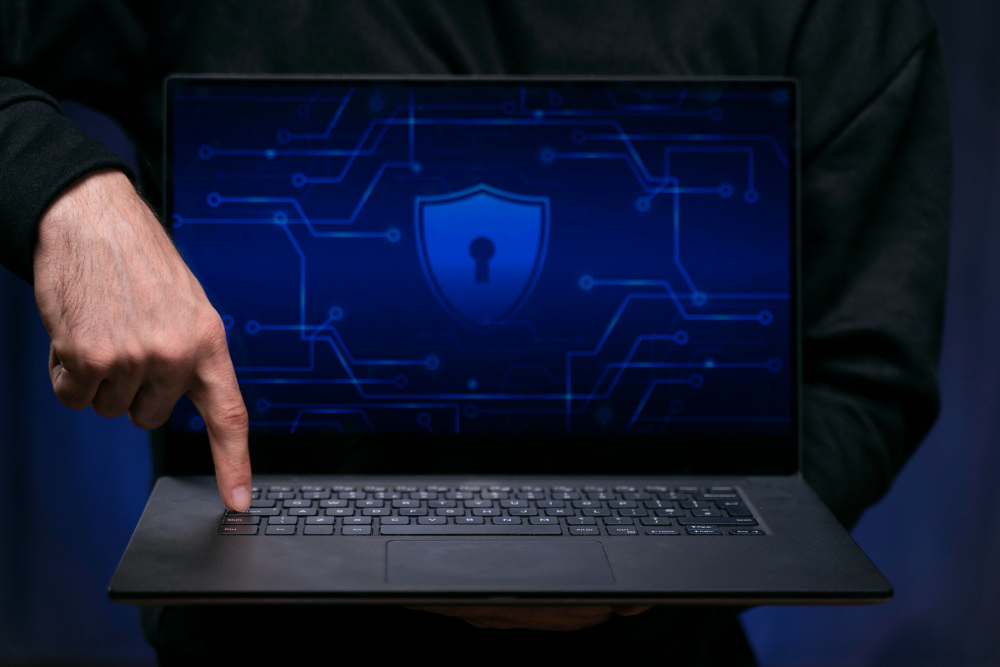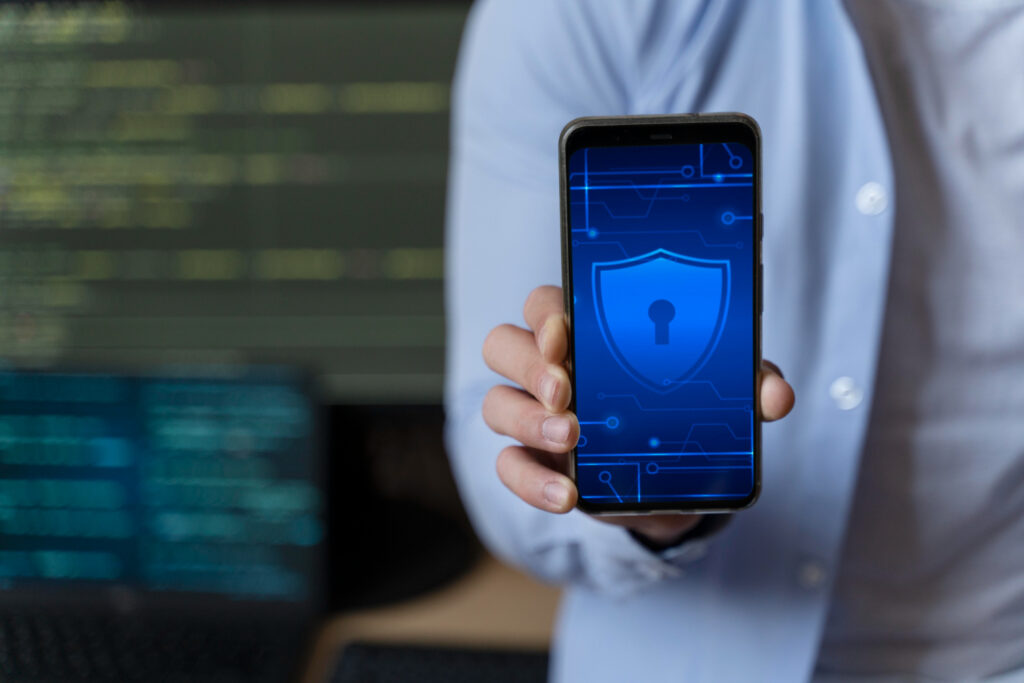Introduction: Understanding Digital Privacy
The Digital Age and Privacy Concerns
In today’s digital age, maintaining privacy can feel like an uphill battle. Every click, share, and post leaves a digital footprint, making it more challenging to protect your personal information. It’s essential to understand the importance of digital privacy and take proactive steps to respect your privacy. By being mindful of your online activities, you can safeguard your information and maintain healthy boundaries.
The Importance of Setting Boundaries
Setting boundaries in the digital world is crucial for protecting your personal information and mental well-being. Boundaries help you control what you share, with whom, and how it’s used. Respecting your privacy means being intentional about your online interactions and ensuring you have control over your digital presence.

Social Media: Navigating Public and Private Spheres
Understanding Social Media Platforms
Social media platforms are designed to encourage sharing, but it’s essential to understand how they work and the privacy settings available. Each platform has different privacy options, and taking the time to configure them properly can significantly impact your digital privacy.
Managing Your Online Presence
Managing your online presence involves being selective about what you post and who can see it. Regularly review your social media profiles and adjust your privacy settings to ensure that you respect your privacy and maintain control over your personal information.
Email Privacy: Protecting Your Communications
Secure Email Practices
Email is a primary mode of communication, but it’s also a common target for cyber-attacks. Using secure email practices, such as enabling two-factor authentication and using strong, unique passwords, can help protect your communications and respect your privacy.
Recognizing Phishing Scams
Phishing scams are designed to trick you into divulging personal information. Being able to recognize and avoid these scams is crucial for maintaining your privacy. Always verify the source of an email before clicking on any links or providing any information.
Password Security: Your First Line of Defense
Creating Strong Passwords
A strong password is your first line of defense against unauthorized access. Use a combination of letters, numbers, and symbols to create a robust password. Avoid using easily guessable information, such as birthdays or common words.
The Importance of Password Managers
Password managers can help you create and store strong, unique passwords for each of your online accounts. By using a password manager, you can ensure that you respect your privacy and protect your personal information from being compromised.
Data Sharing: Knowing When to Say No
The Risks of Over-Sharing
Sharing too much information online can put your privacy at risk. Be mindful of the details you share on social media, forums, and other online platforms. Avoid posting sensitive information that could be used to identify or harm you.
Setting Limits on Data Sharing
Set clear limits on the data you share online. Adjust privacy settings, use pseudonyms when possible, and think twice before providing personal information. Respecting your privacy means being cautious about what you disclose and to whom.
Mobile Privacy: Keeping Your Device Secure
Protecting Your Mobile Devices
Your mobile device contains a wealth of personal information. Protect it by using strong passwords or biometric security features, keeping your software updated, and being mindful of the apps you download.
Managing App Permissions
Many apps request access to your personal information and device features. Review and manage app permissions regularly to ensure that you respect your privacy and limit the data apps can access.
Public Wi-Fi: Risks and Precautions
The Dangers of Public Wi-Fi
Public Wi-Fi networks are convenient but can be risky. They are often unsecured, making it easy for hackers to intercept your data. Avoid accessing sensitive information or conducting financial transactions over public Wi-Fi.
Using VPNs for Enhanced Security
A Virtual Private Network (VPN) can help protect your data when using public Wi-Fi. VPNs encrypt your internet connection, making it harder for others to access your information. Using a VPN is a crucial step in respecting your privacy while on the go.
Online Shopping: Protecting Your Financial Information
Safe Online Shopping Practices
Online shopping is convenient but comes with risks. Only shop from reputable websites, look for secure payment options, and avoid saving your payment information on shopping sites. These practices help you protect your financial information and respect your privacy.
Recognizing Secure Websites
Before entering your payment details, ensure that the website is secure. Look for “https” in the URL and a padlock icon in the address bar. These indicators show that the site uses encryption to protect your data.
Digital Footprint: Managing Your Online Presence
Understanding Your Digital Footprint
Your digital footprint is the trail of data you leave behind when you use the internet. This includes your social media activity, search history, and online purchases. Understanding your digital footprint is the first step in managing it effectively.
Steps to Minimize Your Digital Footprint
To minimize your digital footprint, regularly clear your browser history, use privacy-focused search engines, and be mindful of the information you share online. Taking these steps helps you respect your privacy and maintain control over your personal data.
Cybersecurity: Protecting Against Threats
Common Cybersecurity Threats
Cybersecurity threats, such as malware, ransomware, and phishing attacks, can compromise your privacy and security. Being aware of these threats and taking steps to protect yourself is essential in the digital age.
Best Practices for Cybersecurity
Implement best practices for cybersecurity, such as keeping your software updated, using antivirus programs, and being cautious of suspicious emails and links. These measures help you protect your privacy and prevent cyber-attacks.
Identity Theft: Safeguarding Your Information
How Identity Theft Happens
Identity theft occurs when someone uses your personal information without your permission. This can happen through data breaches, phishing scams, or physical theft. Understanding how identity theft happens can help you take steps to prevent it.
Protecting Yourself from Identity Theft
Protect yourself from identity theft by using strong passwords, monitoring your credit reports, and being cautious about sharing personal information. These steps help you respect your privacy and safeguard your identity.
Privacy Policies: Understanding What You Agree To
Reading and Understanding Privacy Policies
Privacy policies outline how companies collect, use, and protect your data. Reading and understanding these policies is crucial for making informed decisions about your privacy.
Knowing Your Rights
Be aware of your rights regarding data privacy. Understanding your rights helps you make informed decisions and ensures that you respect your privacy when interacting with companies and online services.
Children’s Privacy: Protecting the Young Ones
Online Safety for Children
Children are increasingly using the internet, and it’s essential to protect their privacy. Teach them about online safety, monitor their online activities, and use parental controls to limit their exposure to risks.
Educating Children About Privacy
Educate children about the importance of privacy and how to protect their personal information. Encourage them to think before they share and to report any suspicious or uncomfortable interactions.
Workplace Privacy: Maintaining Professional Boundaries
Protecting Your Privacy at Work
Maintaining privacy in the workplace involves being mindful of the information you share with colleagues and employers. Use professional discretion when discussing personal matters and be cautious about sharing sensitive information.
Managing Work-Related Communication
Use secure channels for work-related communication and be aware of your company’s privacy policies. Respecting your privacy at work helps you maintain professional boundaries and protect your personal information.
Cloud Storage: Keeping Your Data Safe
Secure Cloud Storage Practices
Cloud storage is convenient for accessing files from anywhere, but it also comes with privacy risks. Use strong passwords, enable two-factor authentication, and choose reputable cloud storage providers to protect your data.
Encrypting Your Data
Encrypting your data before uploading it to the cloud adds an extra layer of security. Encryption ensures that even if your data is accessed, it remains unreadable without the decryption key.
Digital Legacy: Planning for the Future
What is a Digital Legacy?
Your digital legacy is the information you leave behind online after you pass away. Planning for your digital legacy involves deciding how you want your digital assets to be handled and who will manage them.
Managing Your Digital Legacy
Create a plan for managing your digital legacy by documenting your online accounts and passwords. Specify your wishes regarding your digital assets and consider appointing a digital executor to manage your online presence after your death.
Privacy Tools: Enhancing Your Security
Essential Privacy Tools
Several tools can help you enhance your privacy, such as VPNs, password managers, and privacy-focused browsers. Using these tools helps you protect your personal information and respect your privacy.
Choosing the Right Privacy Tools
Choose privacy tools based on your specific needs and preferences. Research and compare different options to find the tools that best fit your lifestyle and privacy requirements.
Personal Information: Knowing What to Share
Being Mindful of Personal Information
Be mindful of the personal information you share online and in person. Avoid disclosing unnecessary details and be cautious about sharing sensitive information.
Setting Boundaries for Personal Information
Set clear boundaries for the type of personal information you are willing to share. Respecting your privacy involves being intentional about what you disclose and ensuring that you maintain control over your personal data.
Conclusion: Embracing Digital Privacy
The Importance of Digital Privacy
Digital privacy is essential for protecting your personal information and maintaining control over your online presence. Embracing digital privacy involves being proactive about setting boundaries and using tools and strategies to safeguard your data.
Moving Forward with Confidence
By respecting your privacy and implementing the tips discussed in this blog post, you can navigate the digital world with confidence. Protect your personal information, set boundaries, and enjoy the benefits of a secure and private digital presence.
FAQs
- Why is digital privacy important?
- Digital privacy protects your personal information and helps maintain control over your online presence.
- How can I protect my privacy on social media?
- Use privacy settings, be selective about what you post, and regularly review your profiles.
- What are secure email practices?
- Enable two-factor authentication, use strong passwords, and avoid clicking on suspicious links.
- Why should I use a password manager?
- Password managers help create and store strong, unique passwords, enhancing your security.
- How can I minimize my digital footprint?
- Clear your browser history, use privacy-focused search engines, and be mindful of the information you share online.
- What are the risks of using public Wi-Fi?
- Public Wi-Fi networks are often unsecured, making it easy for hackers to intercept your data.
- How can I protect my mobile device?
- Use strong passwords, enable biometric security, and manage app permissions.
- What should I do if I suspect identity theft?
- Monitor your credit reports, report suspicious activity, and take steps to secure your personal information.
- How can I teach my children about online privacy?
- Educate them about online safety, monitor their activities, and use parental controls.
- What are privacy tools and how do they help?
- Privacy tools like VPNs and password managers enhance your security and protect your personal information.





